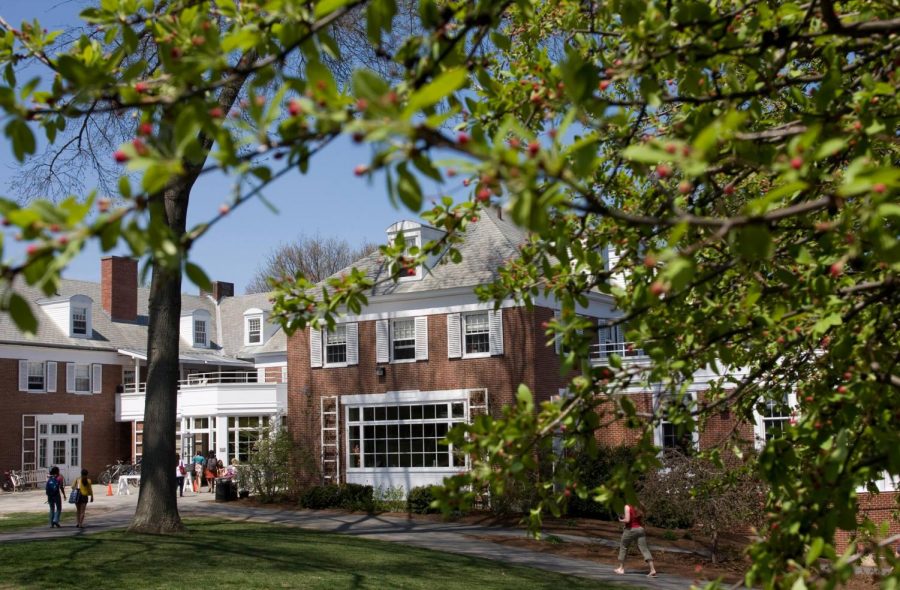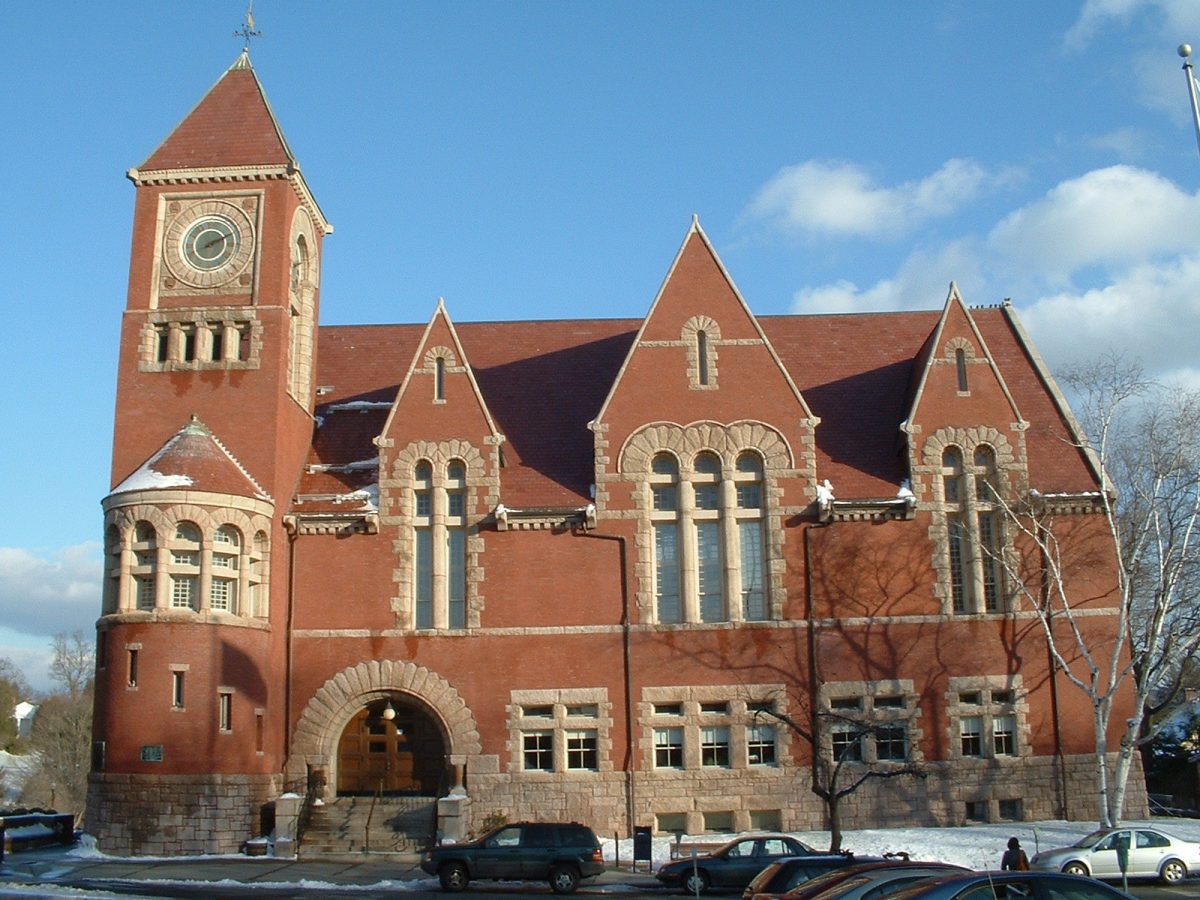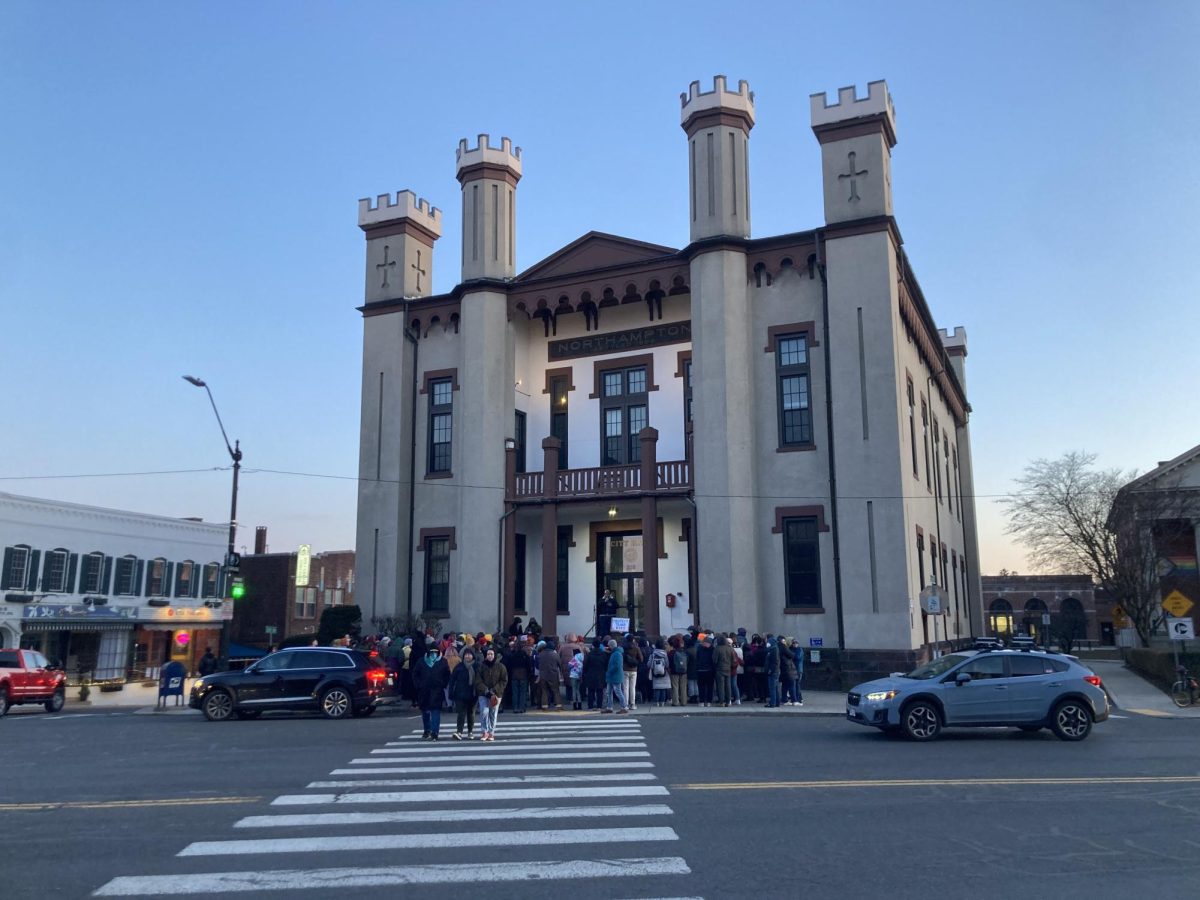The U.S. Department of Justice has targeted Amherst College in a federal probe allegedly concerning whether communications among officials at competing colleges about early-decision applicants violate antitrust laws.
The Department of Justice sent letters to several institutes of higher education asking that they preserve emails and other messages “detailing agreements with other schools regarding their communications with one another” about admitted students and how that information is used, according to a report by the Wall Street Journal.
Inside Higher Ed, which first reported on this story, wrote that the letter “gives some indication” that the focus of the investigation “appears to be whether colleges with early-decision programs are sharing information about admitted applicants with other colleges as a way to enforce the requirement that early-decision applicants attend institutions that admit them.”
Sandy Genelius, chief communications officer at Amherst, confirmed in an email that the college “has been contacted by the Department of Justice” and “is fully cooperating with their request for information.”
“We understand from reporting that we are among multiple colleges contacted,” Genelius wrote.
“We cannot comment further at this time.”
Bowdoin College, Bates College and Colby College have also confirmed receiving a letter from the department, according to Maine’s Lewiston Sun Journal.
The Washington Post reported that Grinnell College, Wellesley College, Wesleyan University, Williams College, Pomona College and Middlebury College were also included in the probe, but the colleges have not confirmed their involvement.
The letter, according to a copy obtained by the Washington Post, said the Department of Justice’s Antitrust Division “has opened an investigation into a potential agreement between colleges relating to their Early Decision practices.”
A 2016 article in U.S. News & World Report, concerning students changing their minds about enrolling at a college to which they have been admitted early decision, quoted Katharine Fretwell, dean of admission and financial aid at Amherst. Fretwell said that her school “and about 30 other colleges” share “lists of students admitted through early decision.” Fretwell was also quoted as saying she would “likely also share the names of students who were admitted via early decision, but who are not attending for financial aid and other reasons.”
Amherst reports that, traditionally, 10 percent of applicants choose the binding early decision option during the application process. Amherst’s application process states that “as an early decision applicant,” students “agree not to be an ED candidate at any other college,” according to the college’s admissions website.
By applying early decision, students agree that if they are admitted, they must withdraw their applications from other colleges and to enroll at Amherst in the fall.
In 2017, 39 percent of the college’s class of 2021 was admitted through early decision.
Kathrine Esten can be reached at [email protected] and followed on Twitter at @KathrineEsten.





















John aimo • Apr 18, 2018 at 3:08 pm
This is great news and I predicted this in another article, now that colleges are being political they are going to be treated differently and they should be.
They should lose their non-profit status, professors should lose tenure, tax on all college endowments and other things colleges operate with a profit(like dining services), funding should be cut, colleges that push an ideology or abuse classroom resources to do so(i.e diversity,communism) should be investigated or have funding cut, colleges that practice affirmative action like giving lower performing students an sat boost or giving them preference should be investigated and it should be easy to sue a college .
Universities should be held accountable and subject to the government,public and taxpayers. They have long abused their position and power in our society.